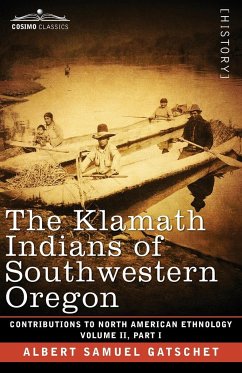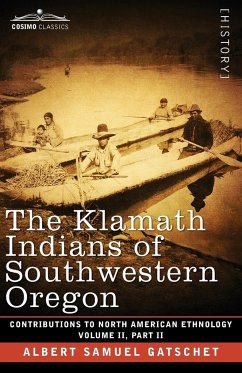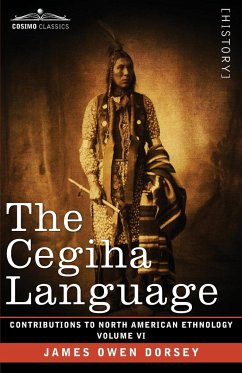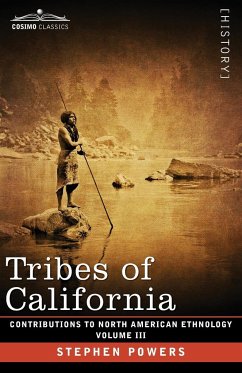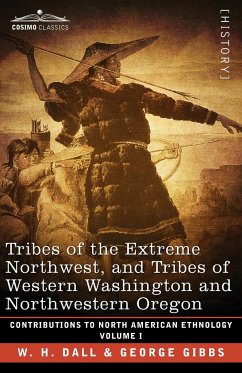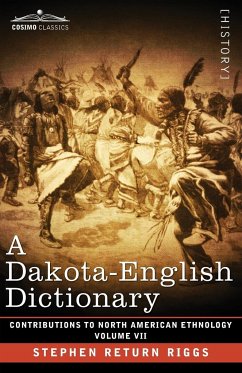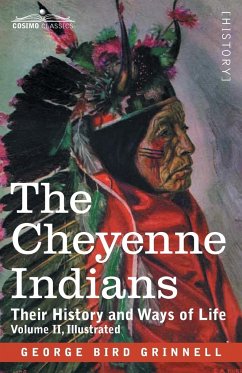"There is probably no language spoken in North America possessed of a nominal inflection more developed than the Klamath." -Albert Samuel Gatschet, The Klamath Indians of Southwestern Oregon (1890) The Klamath Indians of Southwestern Oregon: Contributions to North American Ethnology, Volume II, part I (1890), by Albert Samuel Gatschet, is a two-part document, second in the nine-part series Contributions to North American Ethnology (all available from Cosimo Classics). While focused on the Klamath language, this volume also describes their beliefs, legends, and traditions, their government and social life, their somatic peculiarities, and, more extensively, their language. Part I of this volume includes an ethnographic sketch, and a description of the grammar used in the Klamath language. This book offers a critical contribution to the history of Native Americans and is a must-read for anthropologists, linguists and students of Native American history.
Hinweis: Dieser Artikel kann nur an eine deutsche Lieferadresse ausgeliefert werden.
Hinweis: Dieser Artikel kann nur an eine deutsche Lieferadresse ausgeliefert werden.

